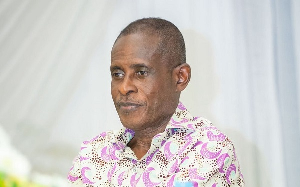Accra, July 4, GNA - A three-day International Telecommunications Un= ion (ITU) seminar on Conformance and Interoperability Testing centres intended to help developing countries bridge the growing standardization gap between them and the developed world opened in Accra on Monday. The Africa Region seminar has attracted specialists from the field of Conformance and Interoperability Testing Centres, top policymakers, engineers, designers, planners, government officials, regulators and standards.
Mr Malcolm Johnson, Director of Telecommunication Standardization Bureau of ITU, said the Union's objective was to develop international standards that provided interoperability so that users of products and services developed according to those standards could make use of them anywhere in the world regardless of who manufactured them and who was providing the service. He said in developing the standards they tried to be non-discriminator= y and that anyone had the right to build equipment or provide services that met the ITU standards. "To do this anyone can acquire the rights to any patents in the standards, either free of charge or on reasonable and non-discriminatory terms, regardless of where they are based or who they are, even if they are competitors of the license holders."
Mr Johnson said the lack of interoperability and conformity to standards was a major issue raised during the African preparatory meeting held in Accra in 2008. "We know interoperability is an extremely difficult objective to achieve in the multi-stakeholder environment we are now in and it is important that our expectations are realistic and aligned with what is possible," he added. The Director announced that ITU was putting in place a conformity database which would record information on what products had been tested to ITU-T Recommendations.
Mr Haruna Iddrisu, Minister of Communication, in a speech read for him= , said within the communications industry, conformance and interoperability testing was key to the observance of standards and ITU recommendations in the industry which also had a bearing on the quality of the network service being provided.
He said Ghana regarded the seminar as an opportunity to develop the relevant human resource capability and also establish vital cooperation for standards institutions across the sub-region. The Minister said standards, which were global in nature, were developed through processes that fully respected the objectives of openness= , transparency and non-discrimination, and recognized in international agreements. "We live in an interconnected world and interoperability is reflect= ed in our homes, through smart houses, our work, our transport, and indeed all around us, as we use the internet. The fact is that users benefit from increased choice from multiple manufacturers while manufacturers benefit from a larger market," he said.
Mr Iddrisu said in Ghana the Standards Board was one institution that was well placed to execute its mandate and that it was necessary to empower it to undertake the testing of Information and Communication Technology equipment and support the National Communications Authority in the enforcement of standards in the telecommunications sector. Currently, the ITU's full membership stands at 192 governments and o= ver 700 private sector entities.
General News of Monday, 4 July 2011
Source: GNA
ITU seminar on Conformance and Interoperability Testing Centres opens
Opinions











